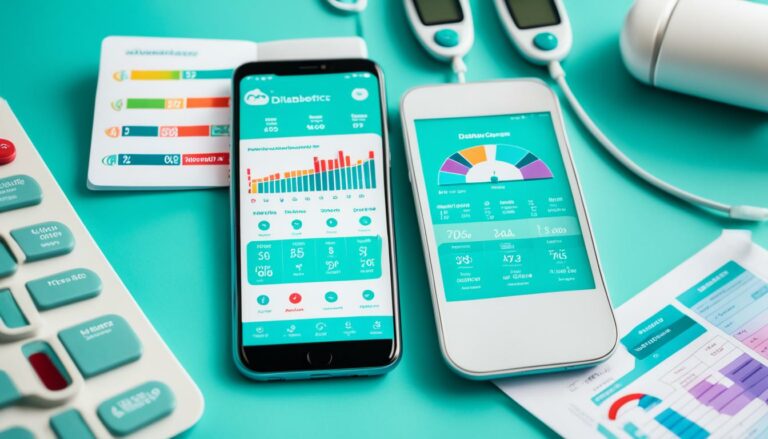Financial well-being is essential for a secure and stress-free future. However, many individuals fall into common financial mistakes that can lead to economic hardships. These financial pitfalls to avoid can be hard to miss. To ensure your financial stability, it’s crucial to be aware of these pitfalls and make smart money moves to avoid them. In this section, we will explore some of the most common financial pitfalls and provide valuable tips for money management, debt avoidance, and smart financial decision-making.
Key Takeaways:
- Understand your financial goals and create a comprehensive financial plan.
- Practice financial discipline and avoid overspending on unnecessary expenses.
- Avoid relying heavily on credit cards for essential purchases to prevent high-interest debt accumulation.
- When buying a new car, consider affordability and the long-term financial implications of a loan.
- Be mindful of overspending on housing, taking into account additional expenses beyond the mortgage payment.
Excessive and Frivolous Spending
Excessive spending and frivolous purchases can have a significant impact on your financial stability. It can be tempting to indulge in small, regular expenses, but these can quickly add up over time, leading to financial strain. For instance, spending just $25 per week on dining out can accumulate to a whopping $1,300 per year. To avoid falling into this costly mistake, it is crucial to practice financial discipline and exercise proper budgeting techniques.
Financial discipline involves consciously curbing unnecessary spending and making thoughtful purchase decisions. By creating a budget that outlines your income and expenses, you gain control over your financial habits. A budget allows you to track and monitor your expenses, making you more aware of where your money is going and enabling you to identify areas where you tend to overspend.
One effective strategy for managing your spending is to allocate specific amounts for different categories such as groceries, entertainment, and discretionary purchases. This allows you to enjoy the things you love while maintaining financial discipline. By setting limits and sticking to them, you can avoid the allure of impulsive purchases that drain your bank account.
It’s essential to prioritize your financial goals and understand the long-term effects of frivolous spending. Rather than indulging in temporary gratification, focus on saving for future milestones such as retirement, emergencies, or major purchases. With a clear understanding of your financial priorities, you can make informed decisions and resist the temptation to engage in excessive spending.
Remember, financial discipline is a skill that can be developed over time. Practice self-control and consider the value of each purchase before making it. By maintaining financial discipline and incorporating budgeting techniques into your daily life, you can avoid excessive and frivolous spending, leading to a more secure financial future.
Relying on Credit Cards for Essentials
When it comes to managing everyday expenses, many individuals turn to their credit cards for convenience. While credit cards can provide short-term financial relief, relying on them for essential purchases can lead to long-term financial stress and the accumulation of credit card debt.
Credit cards often come with high-interest rates, averaging around 24.37%, which can significantly increase the cost of charged items over time. This means that even everyday essentials can become more expensive when paid for with a credit card.
It is crucial to avoid accumulating credit card debt, as it can quickly spiral out of control, causing financial strain and limiting your ability to save or invest. Instead of relying on credit cards for essential expenses, consider finding alternative ways to manage your finances.
Financial Stress and Debt Accumulation
Relying on credit cards can lead to financial stress and a cycle of debt accumulation. The high-interest rates associated with credit cards make it challenging to pay off the balance in full each month, leading to interest charges that continue to accrue over time. This can result in a growing debt that becomes increasingly difficult to manage.
“By relying on credit cards for essentials, individuals can easily fall into the trap of debt accumulation, causing unnecessary financial stress in the long run,” says Amanda Johnson, a financial advisor.
To avoid this financial pitfall, consider implementing the following strategies:
- Create and follow a monthly budget to track your expenses, ensuring that you allocate enough funds for essential purchases.
- Explore alternative payment methods, such as cash or debit cards, for everyday expenses.
- Consider utilizing financial tools like prepaid cards or budgeting apps to help manage your spending.
- If you already have credit card debt, prioritize paying off high-interest balances first while continuing to make minimum payments on other cards.
By taking proactive steps to manage your expenses and prioritize debt repayment, you can break free from the cycle of relying on credit cards and achieve greater financial stability.
| Financial Pitfall | Risks | Prevention Strategies |
|---|---|---|
| Relying on credit cards for essentials |
|
|
It’s important to remember that credit cards can be valuable financial tools when used responsibly. However, relying on them for essential expenses can lead to detrimental consequences. By taking control of your finances, managing your expenses effectively, and finding alternative ways to meet your essential needs, you can avoid the pitfalls of credit card debt and achieve greater financial well-being.
Buying a New Car
Shopping for a new car can be an exciting experience, but it’s essential to make wise financial decisions to avoid potential pitfalls. Many people opt for car loans to finance their purchase, but it’s crucial to consider the long-term implications of borrowing money for a depreciating asset.
When buying a car, affordability should be a top priority. It’s important to evaluate your budget and determine how much you can comfortably afford to spend on a vehicle. This includes not just the monthly loan payments but also insurance, fuel, maintenance, and other associated costs.
One common mistake to avoid is overstretching your finances by buying a car that exceeds your budget. While it may be tempting to go for a high-end model or the latest features, it’s important to consider the long-term financial implications. Remember that cars depreciate in value over time, and buying a more expensive vehicle could lead to financial strain in the future.

Depreciation: A Financial Reality
Depreciation is an unavoidable reality when it comes to cars. The value of a new vehicle typically decreases significantly in the first few years of ownership. According to Edmunds, a new car can lose up to 20% of its value in the first year alone. By year five, it may have lost around 60% of its original value.
This means that if you finance a new car with a loan, you will be paying interest on a depreciating asset. It’s essential to carefully consider the financial impact of this depreciation before committing to a car loan.
“It’s crucial to consider the affordability of the car and to buy a vehicle that meets your needs without overstretching your finances.”
The Hidden Costs of Frequent Trading
Another financial pitfall to avoid is frequently trading in your car for a new one. While it may be tempting to always have the latest model, this can result in losing money on each trade. Dealerships often offer less than the market value for a trade-in, meaning you’ll end up paying more for your new car or rolling negative equity into the next loan. If possible, consider keeping your car for a more extended period to minimize these costs.
Considering Alternatives and Used Cars
If buying a new car is not financially feasible, there are alternatives to consider. Used cars can offer excellent value for money, as their initial depreciation hit has already occurred. Additionally, buying a car outright with cash can help you avoid paying interest on a loan.
Ultimately, the key is to approach car buying with a clear understanding of your financial situation. Research different models, compare prices, and evaluate the long-term costs of owning a new car. By making informed decisions, you can avoid financial hardships and find a vehicle that fits both your needs and your budget.
| Pros of Buying a New Car | Cons of Buying a New Car |
|---|---|
| Peace of mind with warranty coverage | Higher purchase price |
| Access to the latest technology and features | Immediate depreciation |
| Newer safety features | Potential higher insurance premiums |
| Customization options | Higher loan payments and interest costs |
Overspending on Housing
Overspending on housing can put a significant strain on your monthly budget. It’s important to carefully consider the financial implications before buying a house that exceeds your needs, as it can lead to higher housing expenses, property taxes, maintenance costs, and utility bills. By evaluating the carrying and operating costs beyond the mortgage payment, you can ensure that your housing expenses align with your budget and financial goals.
One of the key factors to consider when determining the affordability of a house is the property taxes associated with it. Larger houses often come with higher property tax assessments, contributing to increased financial strain. These taxes can significantly impact your monthly housing expenses and should be factored into your budgeting process.
In addition to property taxes, maintenance costs can also present a financial burden. Owning a larger house typically means higher maintenance and repair expenses. From routine maintenance tasks like landscaping and cleaning to major repairs like roof replacements or HVAC repairs, these costs can add up over time and put a strain on your finances.
Furthermore, utility bills can be another source of financial strain when overspending on housing. Larger houses generally require more energy to heat, cool, and power, resulting in higher electricity, gas, and water bills. These ongoing expenses can create additional financial pressure, making it essential to carefully evaluate the potential utility costs associated with a larger property.
| Financial Implications of Overspending on Housing | |
|---|---|
| Higher housing expenses | – |
| Increased property taxes | – |
| Elevated maintenance costs | – |
| Rising utility bills | – |
By avoiding the trap of overspending on housing, you can alleviate financial strain and create a more secure future. Careful consideration of the long-term financial implications, including housing expenses, high taxes, maintenance costs, and utility bills, is crucial in ensuring that your housing choice aligns with your budget and overall financial well-being.
Using Home Equity Like a Piggy Bank
When facing financial difficulties, it can be tempting to tap into the equity built up in your home. However, using home equity, whether through refinancing or a home equity line of credit, can have detrimental consequences. While it may provide access to cash, it increases your debt and interest payments, potentially putting your financial stability at risk.
Home equity is the difference between the market value of your home and the outstanding balance on your mortgage. It represents the portion of your property that you fully own. Many homeowners see this as an opportunity to leverage their largest asset to meet their current financial needs.
However, it’s crucial to weigh the long-term impact of using your home equity as a quick fix.
When refinancing your mortgage, you replace your existing loan with a new one, often with more favorable terms or a higher loan amount. This may give you access to a large sum of money upfront, but it also increases both your outstanding debt and the overall interest you’ll pay over the loan term.
An alternative option is a home equity line of credit (HELOC), which functions like a credit card, allowing you to borrow against the equity in your home. While a HELOC provides flexibility, the interest rates are often variable and may increase over time, making it challenging to budget for future payments.
Before deciding to use your home equity, it’s essential to explore alternative options. Consider seeking financial advice from a trusted professional who can provide guidance based on your specific circumstances.
“Home equity can be a valuable resource, but it should be used strategically and with caution. Assess your financial goals and evaluate if there are other borrowing options that may be more suitable for your needs.”
Exploring options such as personal loans or low-interest credit cards can help you manage immediate expenses without risking your home. Additionally, a solid budget and debt management plan can provide a clearer path to financial stability.
Pros and Cons of Using Home Equity as a Piggy Bank
| Pros | Cons |
|---|---|
| Access to a large sum of money | Increases your debt |
| Potentially lower interest rates | Higher overall interest payments |
| Flexibility in using the funds | Variable interest rates with HELOCs |
| Possible foreclosure if unable to make payments |
Using your home equity as a “piggy bank” should be a carefully considered decision. While it may provide immediate financial relief, it’s crucial to assess the long-term consequences. By exploring alternative borrowing options and crafting a comprehensive financial plan, you can make informed decisions that protect your future financial well-being.
Financial Pitfalls to Avoid Recap
Avoiding common financial mistakes and making smart money moves is crucial for securing a stable financial future. By practicing financial discipline, individuals can avoid financial pitfalls and achieve their monetary goals. One important aspect is to avoid excessive spending and relying on credit cards for everyday expenses.
Making wise decisions when it comes to buying a car and housing is also key. It’s important to consider the affordability of a new car and not overextend yourself financially. Similarly, overspending on housing can strain your budget, so carefully evaluate the long-term financial implications before purchasing a house.
Another critical factor is being mindful of how home equity is utilized. While tapping into home equity may provide access to cash, it can lead to increased debt and interest payments. Exploring alternative options for financing can help individuals safeguard their financial stability.
In conclusion, taking steps to avoid financial pitfalls and make smart money moves will contribute to a secure financial future. Educating yourself about personal finance, creating a well-defined financial plan, and making sound financial choices are essential. By doing so, you can navigate financial challenges and achieve long-term financial stability.
Learn More Financial Strategies
What are some common financial mistakes to avoid?
Some common financial mistakes to avoid include excessive and frivolous spending, relying on credit cards for essentials, buying a new car without considering affordability, overspending on housing, and using home equity like a piggy bank.
How can I avoid excessive and frivolous spending?
To avoid excessive and frivolous spending, it is essential to practice financial discipline and create a budget to track your expenses. By being mindful of your spending habits and prioritizing your needs over wants, you can avoid unnecessary expenses and maintain financial stability.
What are the risks of relying on credit cards for essentials?
Relying on credit cards for essentials can lead to accumulating credit card debt, which often carries high-interest rates. This can result in financial stress and make it difficult to manage your overall debt. It is important to find alternative ways to manage your expenses and avoid relying solely on credit cards.
What should I consider when buying a new car?
When buying a new car, it is important to consider the affordability of the car. Borrowing money to buy a car means paying interest on a depreciating asset. It is advisable to choose a vehicle that meets your needs without overstretching your finances. Additionally, trading in cars frequently can result in losing money on each trade.
How can I avoid overspending on housing?
To avoid overspending on housing, carefully evaluate the long-term financial implications before buying a house that exceeds your needs. Consider not only the mortgage payment but also factors such as taxes, maintenance costs, and utilities. It is important to ensure that the cost of owning a home fits within your budget.
What are the risks of using home equity like a piggy bank?
Using home equity, whether through refinancing or a home equity line of credit, can increase debt and interest payments. While it may provide access to cash, it is important to consider the long-term impact and explore alternative options for financing. Carefully assess the potential risks and benefits before tapping into your home equity.
How can I navigate financial pitfalls and achieve financial goals?
To navigate financial pitfalls and achieve financial goals, it is important to practice financial discipline, avoid excessive spending and reliance on credit cards, make wise car and housing choices, and be mindful of how home equity is used. Educating yourself about personal finance and creating a well-defined financial plan can help ensure long-term financial stability.




